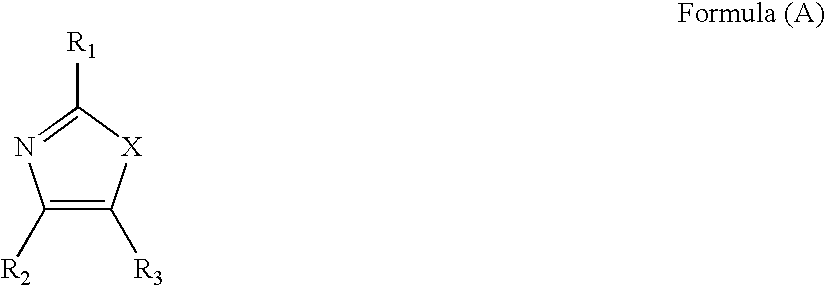Display element and method of driving the same
a technology of display elements and display elements, applied in the field of new electrochemical display elements, can solve the problems of low portability, difficult to consider action as a gentle means for the human body, fatigue of eyes, etc., and achieve the effect of simple member constitution
- Summary
- Abstract
- Description
- Claims
- Application Information
AI Technical Summary
Benefits of technology
Problems solved by technology
Method used
Image
Examples
example 1
Production of Display Element 1
[0287](Preparation of Electrolytic Solution 1)
[0288]There were dissolved 0.1 g of silver iodide, 0.15 g of sodium iodide, 0.05 g of polyethylene glycol (average molecular weight: 500,000), and 0.1 g of 3,3,-dimethyl-2-(p-dimethylaminostyryl)indolino[2,1-b]oxazoline (hereinafter referred to as IRPDM) in 2.5 g of dimethyl sulfoxide to obtain electrolytic solution 1.
[0289](Production of Electrode 1)
[0290]An ITO (indium tin oxide) film of a pitch of 145 μm and an electrode width of 130 μm was formed on a glass substrate of 2 cm×4 cm having a thickness of 1.5 mm via a conventionally known method to obtain electrode 1 which was a transparent one.
[0291](Production of Electrode 2)
[0292]A silver-palladium electrode having an electrode thickness of 0.8 μm, a pitch of 145 μn, and an electrode width of 130 μm was formed on a glass substrate of 2 cm×4 cm having a thickness of 1.5 mm via a conventionally known method. This electrode was designated as electrode 2.
[02...
example 2
Production of Display Element 2
[0299]Electrolytic solution 2 was prepared in the same manner as for electrolytic solution 1 used in production of above display element 1 except that IRPDM was changed to an equimolar amount of exemplified compound 13 of Formula (A). Subsequently, display element 2 was produced in the same manner as in production of display element 1 except that electrolytic solution 1 was changed to electrolytic solution 2.
Evaluation of Display Element 2
[0300]Display element 2 was evaluated in the same manner as for display element 1 as described above. Display element 2 realized white display during no voltage application; cyan display (maximum absorption wavelength: 645 nm) during +1.5 V application; and black display during −1.5 V application. Accordingly, the results showed that multi-color display of 3 colors was realized using one type of electrolyte between a pair of opposite electrodes.
[0301]In display element 2, the overvoltage for cyan coloring was 0.8 V an...
example 3
Production of Display Element 3
[0302]Electrolytic solutions 4 and 5 were prepared in the same manner as for electrolytic solution 2 used in production of display element 2 described in Example 2 except that 0.3 g of titanium oxide was added and further exemplified compound 13 of Formula (A) was changed to an equimolar amount of exemplified compound 105 and exemplified compound 4 of Formula (A), respectively.
[0303]The peripheral portion of electrode 2 described in Example 1 was edged with an olefin-based sealing agent containing glass spherical beads of an average particle diameter of 20 μm at 10% by volume. And then a partition wall having 100 μm square windows was formed on the pixel portions intersecting with electrode 1 via photolithography to produce electrode 4. Electrolytic solutions 3, 4, and 5 were injected into the individual windows separately via Bayer arrangement using a dispenser. Further, electrode 1 was bonded at right angles to each stripe electrode to produce displa...
PUM
 Login to View More
Login to View More Abstract
Description
Claims
Application Information
 Login to View More
Login to View More - R&D
- Intellectual Property
- Life Sciences
- Materials
- Tech Scout
- Unparalleled Data Quality
- Higher Quality Content
- 60% Fewer Hallucinations
Browse by: Latest US Patents, China's latest patents, Technical Efficacy Thesaurus, Application Domain, Technology Topic, Popular Technical Reports.
© 2025 PatSnap. All rights reserved.Legal|Privacy policy|Modern Slavery Act Transparency Statement|Sitemap|About US| Contact US: help@patsnap.com



